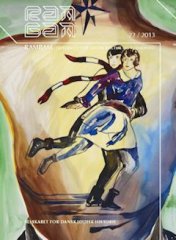Et umage venskab
Resumé
An unexpected friendship
Josef Herscher, a carpenter from Cologne, was 27 years old when he went on Hachsharah on a dairy farm in Denmark. During his relatively short stay in Denmark, he learnt the Danish language and became part of the Kristiansen family. When he immigrated to Palestine in the summer of 1935, it was the last time he ever saw his parents and four of his seven siblings again.
In Palestine, he stayed in touch with Maren, the wife of the Danish farmer Kresten Madsen Kristiansen. He shared his thoughts and worries with her about his family in Germany, and they exchanged letters until at least 1952. Josef met his future wife Lucy in a kibbutz in 1937, and they settled in Tel Aviv where they had two sons, Uri and Eli, in 1941 and 1947 respectively. In 1954, the small family moved to California, where two of Josef’s siblings had settled down. The academic opportunities that Josef himself had not had in his youth he wanted his sons to have, and the children were therefore taught the values and appreciation of Bildung – the German word for education as a way of life and thought.
The oldest son wanted to explore his parents’ European past for himself and, after graduating from Berkeley in 1964, he travelled to Europe for a couple of months. The highlight of his trip was meeting the 74-year-old Maren in Denmark and hearing stories about his father that he did not know about. He left Europe in despair but with a determination to live a life worthwhile. Though neither Josef nor Lucy had been particularly religious, both Uri and his younger brother Eli turned to the reform rabbinate because with Uri’s own words: “we somehow saw in the rabbinate an answer to our quest for Bildung and a way to repair the ruptured Jewish life we had inherited.”





